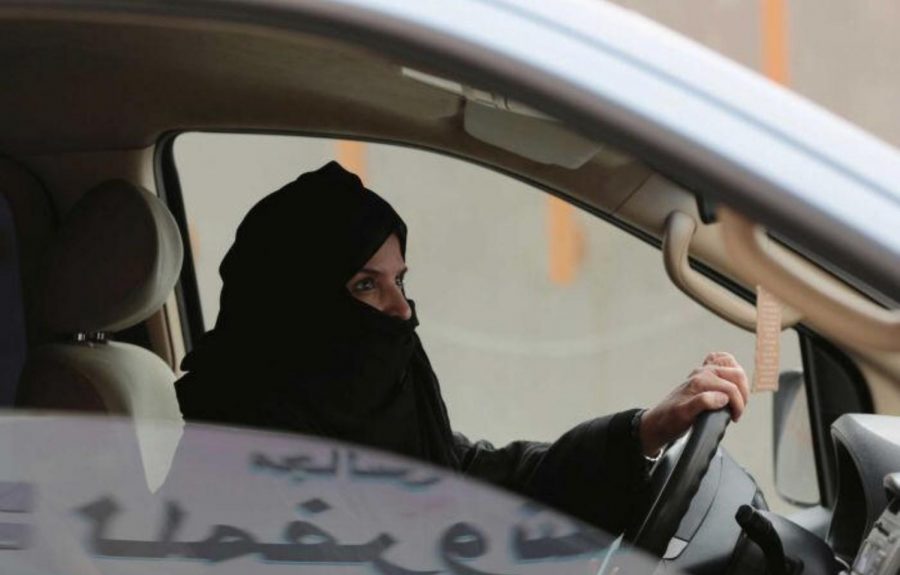Saudi women win the right to drive
November 15, 2017
The 30-year fight has finally paid off. Through a royal decree issued in September, women in Saudi Arabia will be able to drive as of June 2018. People in Western nations have difficulty comprehending the discrimination Saudi women face every single day. Most Americans have been driving since their teen years, while adult Saudi females were not even able to get in the driver’s seat.
This is just the first step of many that must be taken on behalf of the women of Saudi Arabia. “They are all making some progress, but they still have a long way to go,” admitted Nick Telerico, ’18. A questionable argument opposing Saudi women driving is that “male drivers wouldn’t know how to handle having women in cars next to them,’’ according to Upfront magazine. Men even went as far as to say that women driving would increase bad behavior and lead to families breaking apart.

Women in Saudi Arabia have won the right to drive automobiles. They will be permitted to legally drive next June after fighting for nearly two decades to do so.
Apparently, Saudi men believe their marriages would be threatened if they see other women behind the wheel. But not all women will be able to drive. Mostly only those from upper classes can afford owning a car, and the country’s strict laws could keep a woman from driving if male relatives forbid it.
Discrimination reaches far into Saudi culture. For the most part, people do not marry for love in Saudi Arabia. Rather, marriages are arranged by parents. Women and men are not even allowed to be around each other. There are female only gyms, boutiques, and malls, and dividers separate the sexes in common areas. While Saudi women are allowed to go to college, few actually achieve professional positions afterwards.
When Matt Volpe, a junior, was informed of the status of Saudi Arabian women’s rights, he asserted, “That is pathetic, that we have gender segregation in the world. I thought we’d overcome that.”
A woman’s appearance is also strictly legislated. Females are required to wear abayas, which are all-black, head-to-toe cloaks. Miss Halle Randall, alumna volunteer in Campus Ministry, has a friend who lives in Saudi Arabia. She noted, “Their hair is only for their husband” to see. Most regions allow the whole face to show, but women cannot wear makeup because anything that could “show off their beauty” is prohibited.
It is important to note that the decree to allow women to drive came after “more than two decades of activism in the country, from the driving demonstration led by 40 courageous women in the 1990s, to more recent protests in the streets in 2011 and 2013,’’ according to a recent Fortune article.
So, Saudi women have made strides in demanding their right to drive, but more serious restrictions on their freedom remain.










